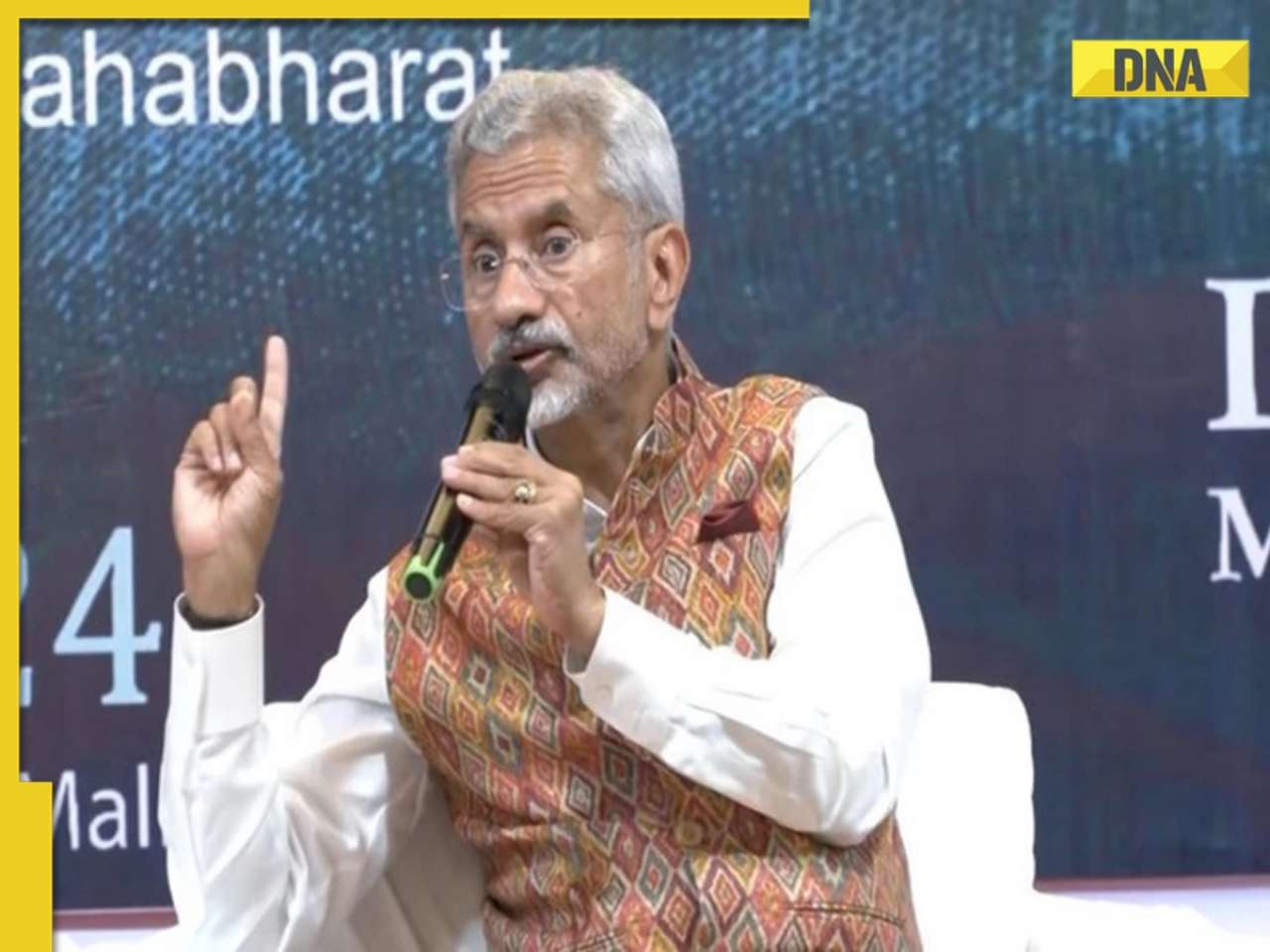Charity commissioner’s order in All Saints Church case may halt other development deals too.
In a landmark order, the Maharashtra charity commissioner has ruled that church properties belong to the government and cannot be sold by those in possession of them. The institutions running the churches are merely custodians of the land and buildings.
An order passed by joint charity commissioner NV Deshmukh says that church properties can be used only for religious and educational purposes.
Deshmukh passed the order in a case relating to All Saints Church at Malabar Hill in Mumbai. In this case, PB Amolik, secretary of the Bombay Diocesan Trust Association (BDTA), had sought the charity commissioner’s permission to sell transfer of development rights (TDR) to the extent of 2,283 square metres against the church property at Malabar Hill.
Passing his final order on October 22, 2009, Deshmukh rejected the BDTA request saying that no change of user can be allowed on church properties.
The order has major implications for many deals involving the sale of church land for development, some of them entered into by bogus trusts
An official inquiry by the state’s law and judiciary department earlier this year had declared over 20 such deals involving “bogus” trusts and trustees as illegal. It also asked the charity commissioner to scrap 18 dubious deals that were awaiting clearance.
Deals pending with the charity commissioner include development of land belonging to Afghan Church in Colaba, among others, and all of them may have to be scrapped.
The October 22 order of joint charity commissioner Deshmukh in the All Saints Church case observed that two rival groups of the BDTA, one headed by Amolik, the applicant, and the other headed by RR Salvi (the objectors to the sale), had moved several change reports before the assistant charity commissioner. Out of these, the change reports filed by the Amolik group were accepted and those filed by the Salvi group rejected. These orders were challenged in appeals No 63/2002 to 73/2002. The appeals were, however, dismissed by an order dated March 20, 2007, by the charity commissioner.
“It is not in dispute that the church was in existence over the property prior to February, 1891. By an indenture dated February 5,1891, the property was allotted as a grant to the church by the (British) government. The property was allotted for the specific purpose of religious worship of the established Church of England and for no other purpose. The document prohibits any change in usage other than for religious worship. As per the indenture, in case the property is used for other purposes, the grant shall cease and hereafter the property shall become absolutely the property of the secretary of the state.”
“Post independence, the state of Maharashtra has substituted the secretary of state,” Deshmukh said in his order.
“The averments in the application about necessity to sell are incorrect and contrary to the facts on record. The proposed transaction is not beneficial for the objectors (Salvi and others), church and school, as it would stop their further plans for progress and development. In fact, the proposal is against the interests of the trust and beneficiaries”, it further added.
“Moreover, the procedure adopted by the trustees for transfer lacked transparency. Dealing with the property by private negotiations with the offerer (the builder who was to develop the property) was objectionable. An offer with low price was accepted without making any attempts to verify and ascertain actual market price”, the order said.
What the judgment means
There are approximately 4,000 church properties in Maharashtra which are under the custodianship of some 50-60 small and big trusts. More than 450, including 100-and- odd in Mumbai alone, civil and criminal cases regarding such properties are pending in various courts.
Most of the cases relate to the sale of church properties under the pretext of generating additional revenue or redevelopment of old and dilapidated structures situated on church lands.
As the jurisdiction of the charity commissioner covers the whole of Maharashtra, the individuals and organisations opposed to widespread church land sales can now make use of the judgment in stalling such illegal sales by quoting the recent order.
The charity commissioner’s order could serve as a benchmark during all such proceedings and no such sale may be allowed in the future. Ordinary churchgoers were elated at the development as the order will see a gradual decline in litigation over church properties.
![submenu-img]() Meet IIT-JEE topper with AIR 1, son of government school teachers, he went on to pursue...
Meet IIT-JEE topper with AIR 1, son of government school teachers, he went on to pursue...![submenu-img]() Salman Khan house firing case: One more Lawrence Bishnoi gang member arrested by Mumbai Police
Salman Khan house firing case: One more Lawrence Bishnoi gang member arrested by Mumbai Police ![submenu-img]() Mukesh Ambani to host Anant-Radhika's second pre-wedding function: Trip to start from Italy with 800 guests and end in..
Mukesh Ambani to host Anant-Radhika's second pre-wedding function: Trip to start from Italy with 800 guests and end in..![submenu-img]() Driver caught on camera running over female toll plaza staff on Delhi-Meerut expressway, watch video
Driver caught on camera running over female toll plaza staff on Delhi-Meerut expressway, watch video![submenu-img]() 'If you come and do something here...': EAM S Jaishankar on India's 'message' against terrorism
'If you come and do something here...': EAM S Jaishankar on India's 'message' against terrorism![submenu-img]() Meet IIT-JEE topper with AIR 1, son of government school teachers, he went on to pursue...
Meet IIT-JEE topper with AIR 1, son of government school teachers, he went on to pursue...![submenu-img]() TN 11th Result 2024: TNDGE Tamil Nadu HSE (+1) result declared, direct link here
TN 11th Result 2024: TNDGE Tamil Nadu HSE (+1) result declared, direct link here![submenu-img]() Meet doctor who cracked UPSC exam with AIR 9 but didn’t became IAS due to…
Meet doctor who cracked UPSC exam with AIR 9 but didn’t became IAS due to…![submenu-img]() TN 11th Result 2024 to be declared today; know how to check
TN 11th Result 2024 to be declared today; know how to check![submenu-img]() Meet man who worked as coolie, studied from railway's WiFi, then cracked UPSC exam to become IAS, secured AIR...
Meet man who worked as coolie, studied from railway's WiFi, then cracked UPSC exam to become IAS, secured AIR...![submenu-img]() DNA Verified: Is CAA an anti-Muslim law? Centre terms news report as 'misleading'
DNA Verified: Is CAA an anti-Muslim law? Centre terms news report as 'misleading'![submenu-img]() DNA Verified: Lok Sabha Elections 2024 to be held on April 19? Know truth behind viral message
DNA Verified: Lok Sabha Elections 2024 to be held on April 19? Know truth behind viral message![submenu-img]() DNA Verified: Modi govt giving students free laptops under 'One Student One Laptop' scheme? Know truth here
DNA Verified: Modi govt giving students free laptops under 'One Student One Laptop' scheme? Know truth here![submenu-img]() DNA Verified: Shah Rukh Khan denies reports of his role in release of India's naval officers from Qatar
DNA Verified: Shah Rukh Khan denies reports of his role in release of India's naval officers from Qatar![submenu-img]() DNA Verified: Is govt providing Rs 1.6 lakh benefit to girls under PM Ladli Laxmi Yojana? Know truth
DNA Verified: Is govt providing Rs 1.6 lakh benefit to girls under PM Ladli Laxmi Yojana? Know truth![submenu-img]() Remember Harsh Lunia? Just Mohabbat child star, here's how former actor looks now, his wife is Bollywood's popular...
Remember Harsh Lunia? Just Mohabbat child star, here's how former actor looks now, his wife is Bollywood's popular...![submenu-img]() Mother's Day 2024: Bollywood supermoms who balance motherhood, acting, and run multi-crore businesses
Mother's Day 2024: Bollywood supermoms who balance motherhood, acting, and run multi-crore businesses![submenu-img]() Rocky Aur Rani's Golu aka Anjali Anand shocks fans with drastic weight loss without gym, says fitness secret is...
Rocky Aur Rani's Golu aka Anjali Anand shocks fans with drastic weight loss without gym, says fitness secret is...![submenu-img]() In pics: Ram Charan gets mobbed by fans during his visit to Pithapuram for ‘indirect campaign’ for uncle Pawan Kalyan
In pics: Ram Charan gets mobbed by fans during his visit to Pithapuram for ‘indirect campaign’ for uncle Pawan Kalyan![submenu-img]() Streaming This Week: Yodha, Aavesham, Murder In Mahim, Undekhi season 3, latest OTT releases to binge-watch
Streaming This Week: Yodha, Aavesham, Murder In Mahim, Undekhi season 3, latest OTT releases to binge-watch![submenu-img]() Haryana Political Crisis: Will 3 independent MLAs support withdrawal impact the present Nayab Saini led-BJP government?
Haryana Political Crisis: Will 3 independent MLAs support withdrawal impact the present Nayab Saini led-BJP government?![submenu-img]() DNA Explainer: Why Harvey Weinstein's rape conviction was overturned, will beleaguered Hollywood mogul get out of jail?
DNA Explainer: Why Harvey Weinstein's rape conviction was overturned, will beleaguered Hollywood mogul get out of jail?![submenu-img]() What is inheritance tax?
What is inheritance tax?![submenu-img]() DNA Explainer: What is cloud seeding which is blamed for wreaking havoc in Dubai?
DNA Explainer: What is cloud seeding which is blamed for wreaking havoc in Dubai?![submenu-img]() DNA Explainer: What is Israel's Arrow-3 defence system used to intercept Iran's missile attack?
DNA Explainer: What is Israel's Arrow-3 defence system used to intercept Iran's missile attack?![submenu-img]() Salman Khan house firing case: One more Lawrence Bishnoi gang member arrested by Mumbai Police
Salman Khan house firing case: One more Lawrence Bishnoi gang member arrested by Mumbai Police ![submenu-img]() Meet actress, who got rejected for her looks, had no hit for 15 years; later beat Alia, Deepika, Katrina at box office
Meet actress, who got rejected for her looks, had no hit for 15 years; later beat Alia, Deepika, Katrina at box office![submenu-img]() Abdu Rozik breaks silence on his wedding announcement being called ‘publicity stunt’: ‘The whole world is…’
Abdu Rozik breaks silence on his wedding announcement being called ‘publicity stunt’: ‘The whole world is…’![submenu-img]() Meet actress who made debut with Salman Khan, had super flop career, then got TB, now lives in chawl, runs..
Meet actress who made debut with Salman Khan, had super flop career, then got TB, now lives in chawl, runs..![submenu-img]() Meet actress who worked with Naseeruddin Shah, sister of popular models, is now getting trolled on social media for..
Meet actress who worked with Naseeruddin Shah, sister of popular models, is now getting trolled on social media for..![submenu-img]() Driver caught on camera running over female toll plaza staff on Delhi-Meerut expressway, watch video
Driver caught on camera running over female toll plaza staff on Delhi-Meerut expressway, watch video![submenu-img]() Delhi man takes 200 flights in 110 days, steals lakhs worth of jewelry from passengers
Delhi man takes 200 flights in 110 days, steals lakhs worth of jewelry from passengers![submenu-img]() Viral video: Man makes paratha with 'diesel', internet reacts
Viral video: Man makes paratha with 'diesel', internet reacts![submenu-img]() Viral video of 'black jalebi' leaves internet in shock; netizens say 'hey bhagwan...'
Viral video of 'black jalebi' leaves internet in shock; netizens say 'hey bhagwan...'![submenu-img]() Real-life Bambi and Thumper? Adorable deer and rabbit video melts hearts online
Real-life Bambi and Thumper? Adorable deer and rabbit video melts hearts online




















































)
)
)
)
)
)